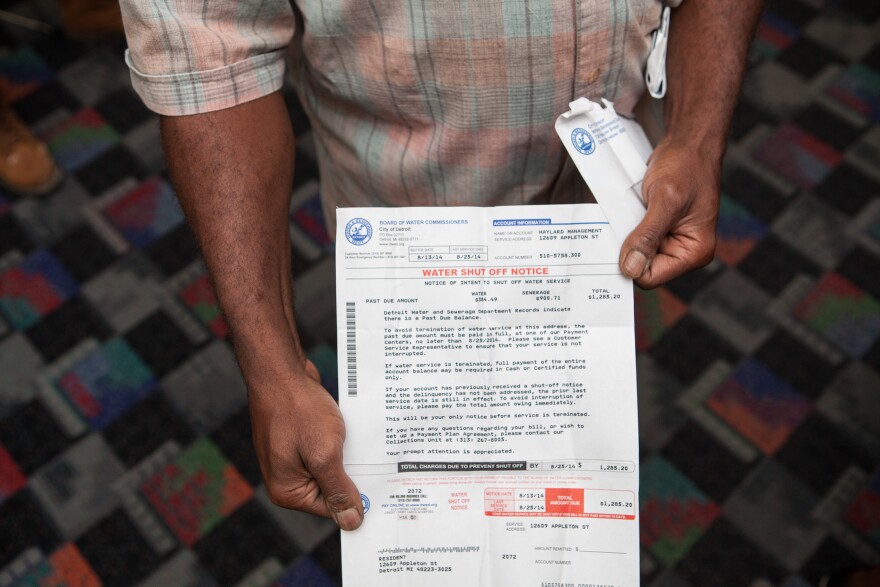With all the attention paid to water issues in Michigan thanks to the Flint water crisis, the Detroit News highlighted another problem in the city of Detroit: water shutoffs.
Joel Kurth’s article begins with the following:
Detroit last year shut water service to 23,300 homes — the equivalent of every household in the city of Pontiac — but left the taps running at thousands of businesses that owe millions of dollars, city documents show. Businesses and government-owned properties owe nearly twice as much as residences, $41 million compared with $26 million for homes, but only 680 were shut off in 2015, according to records obtained by The Detroit News through the Freedom of Information Act.
When Gary Brown took over as water chief for the city of Detroit, he said reforms were coming. Bryan Peckinpaugh from the Detroit Water and Sewerage Department (DWSD) joined Stateside to talk about what changes are being made and the recent shutoffs.
“In the past 90 days … we’ve changed our business practices,” said Peckinpaugh. “No residents have been shut off [in Detroit] this winter, unless there’s an illegal hookup. But our business practices have changed and we’ve put some emphasis on commercial accounts.
We've changed our business practices ... No residents have been shut off [in Detroit] this winter, unless there's an illegal hookup. But our business practices have changed and we've put some emphasis on commercial accounts.
“We have two pilot programs that we’re working on right now,” he added. “We have a law firm that’s under contract to pursue past due balances on commercial accounts and the number of cases that the law firm is working on is over $2.2 million … several of those are apartment buildings.”
Peckinpaugh points out that the Detroit News report is last year’s data and that DWSD is working to change its approach in 2016. He says this year, 43,900 customers are on payment plans, compared with last year when there were 9,000.
“Our focus is to assist customers in paying their past due balances and to keep their water on,” said Peckinpaugh.
The city of Detroit has gotten a lot of attention for water rate increases in recent years, but getting more customers to pay their bills can help.
“A lot of our cost has to do with when our collection rates are low due to unpaid balances of water bills, that balance turns into bad debt and then gets transferred to the rates for the following year,” said Peckinpaugh. “So as we improve these business practices and reduce the number of delinquent accounts and improve our collection rates, that actually helps rates. And we’ve seen the impact already.”
Listen to the full interview below to hear more about the disputes between the DWSD and some major businesses about billing discrepancies.
Support for the Detroit Journalism Cooperative on Michigan Radio comes from the John S. and James L. Knight Foundation, Renaissance Journalism's Michigan Reporting Initiative, the Ford Foundation and the Corporation for Public Broadcasting.







